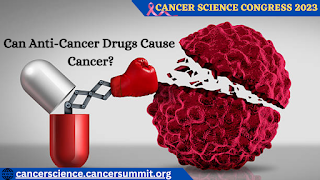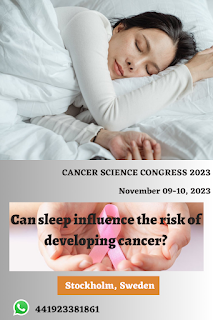Can Anti-Cancer Drugs Cause Cancer?
Anti-cancer Drugs target malignant cells that can reproduce rapidly. Normal cells, on the other hand, may be destroyed during chemotherapy as a result of mutations caused by these medications. Some anti-cancer medications can also produce free radicals that are damaging to normal cell DNA. Because each anti-cancer medicine has a unique molecular structure, it is thought that larger doses of these drugs may raise the chance of secondary cancer induction.
Some of you may be
surprised or shocked. However, investigations on the carcinogenicity of
anti-cancer medications may be traced back to 1948. There have been numerous
studies that have studied a wide range of anticancer medications since Haddow
and colleagues first published their work suggesting the possibility of cancer
induced by anticancer drugs. A study accumulated information regarding 37
anti-cancer treatments that were alleged to be carcinogenic by conducting a
literature review of significant data. (Here's an excellent post that
elaborates on a study on the effect of anti-cancer medications in diabetes
prevention).
Among the 37
medications are cyclophosphamide, mechlorethamine, cisplastin, and semustine.
These medicines have been linked to acute myelogenous leukaemia (AML) in
patients who have survived primary malignancy. Another class of medications
known as topoisomerase II inhibitors has been linked to the development of
leukaemia as a secondary tumour within 2-3 years of primary cancer treatment.
The risk of secondary cancer rises with increasing dose, exposure to certain
medications, and drug intensity or concentration. Learn more about
chemotherapy's side effects.
Chemotherapy
has the ability to cure cancer since it kills cells. It can kill both cancer
cells and normal cells. Killing normal cells can have unfavourable
consequences. For a variety of causes, side effects differ from one medicine to
the next. For example, not all chemotherapy medicines cause hair loss.
Common
side effects of chemotherapy:
- Low blood counts causes an increased
possibility of developing infection or anemia
- Nausea, vomiting
- Mouth soreness
- Hair loss
- Pain or nerve changes
- Skin changes or reactions
- Constipation or diarrhea
- Tiredness
- Loss of appetite
- Changes in fertility and sexuality
Chemotherapy has made
great progress with the discovery of novel strategies to reduce the
carcinogenicity of anti-cancer medications. One such study on the prevention of
carcinogenicity of anti-cancer medications discovered the potential of a
molecule called metallothionein to decrease the cancer-inducing effects of
anti-cancer drugs. There are also various research on the standardisation of
anti-cancer drug doses that can be given to cancer patients to reduce their
risk of second cancer. Learn everything you can about cancer chemotherapy.
Cancer
specialists and surgeons underline that most second cancers can emerge at
random in cancer survivors, with no role for anti-cancer medications. So, the
worry of developing a second cancer as a result of anti-cancer medications
should not be a deterrent to using chemotherapy to treat your original disease.
According to studies,
survivors of Hodgkin's lymphoma (cancer of the immune system) have a 2-3 times
higher risk of developing a second cancer than other cancer survivors.
Furthermore, the odds are larger than 20% in the first 20 years after primary
cancer treatment. Survivors of non-Hodgkin lymphoma (NHL) are at increased risk
of developing lung cancer, kidney cancer, and melanoma (skin cancer).



Comments
Post a Comment